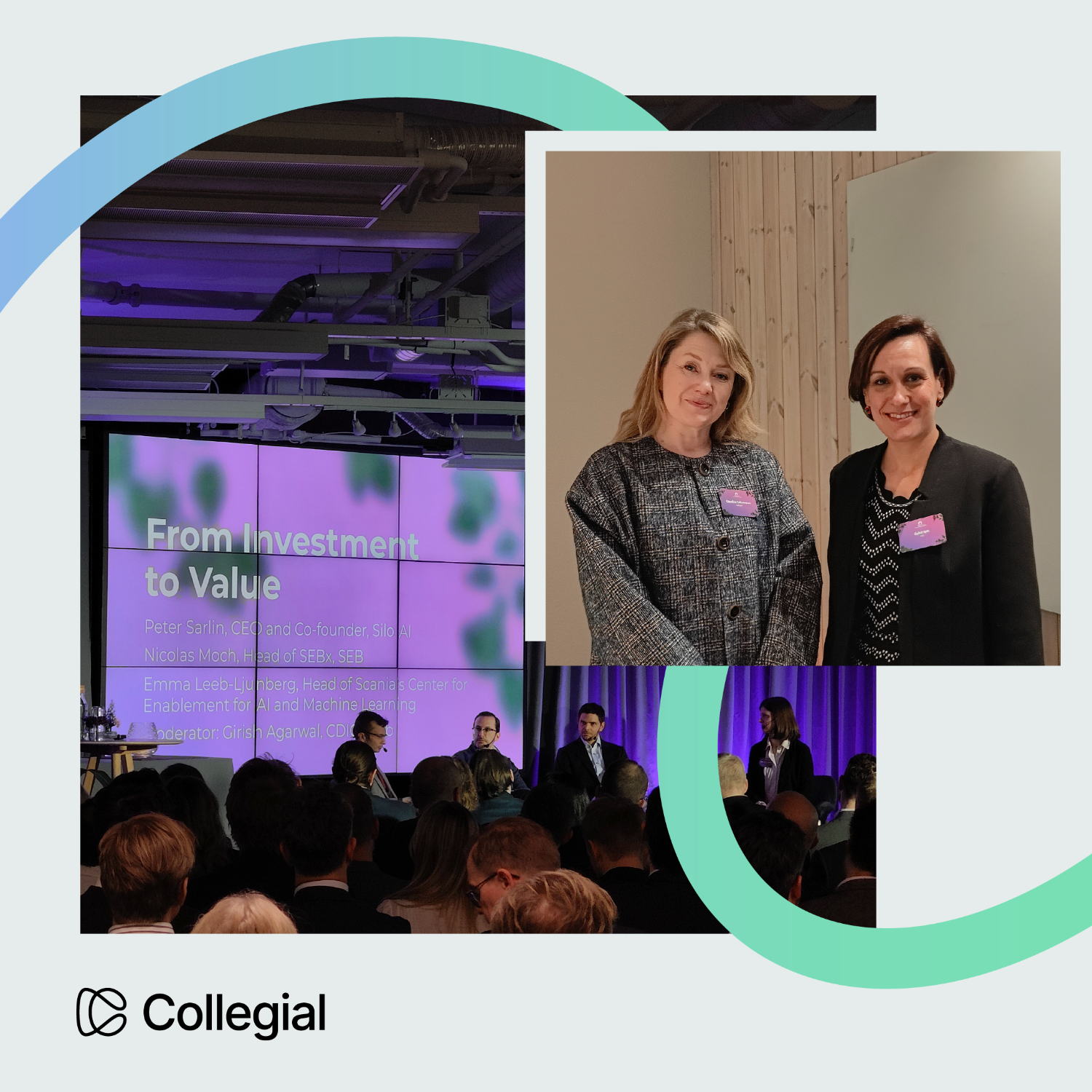During a Combient AI Thursday event, our founder Ronald Bernette delivered an insightful keynote on the fusion of human interaction and AI. He highlighted the importance of leveraging AI for good, solving complex problems, and enhancing human abilities. His discussion on AI integration in asynchronous workflows and digital ecosystems revealed how these advancements are reshaping productivity and driving economic growth. Central to his message was the emphasis on continuous learning as a strategy for large scale adoption and sustainable competitive advantage.
Leveraging AI for good
 Ronald began by underscoring our responsibility to harness AI for positive outcomes. AI has the potential to solve complex problems and significantly enhance human capabilities. By integrating AI into various processes, organizations can increase efficiency and create innovative solutions to challenges that were previously overwhelming. His message was clear: AI should be a tool for good, enhancing the human experience and driving meaningful progress.
Ronald began by underscoring our responsibility to harness AI for positive outcomes. AI has the potential to solve complex problems and significantly enhance human capabilities. By integrating AI into various processes, organizations can increase efficiency and create innovative solutions to challenges that were previously overwhelming. His message was clear: AI should be a tool for good, enhancing the human experience and driving meaningful progress.
The role of AI in reshaping productivity
AI integration in asynchronous workflows and digital ecosystems is a game-changer for productivity. These technologies enable more flexible and efficient ways of working, breaking down traditional barriers of time and space. Asynchronous workflows allow teams to collaborate without the constraints of synchronized schedules, leading to increased efficiency and innovation. Digital ecosystems, powered by AI, provide the infrastructure needed to support these new ways of working, driving improvements in productivity.
"AI integration in asynchronous workflows and digital ecosystems is reshaping productivity and driving economic growth."
Economic impact and market trends
Ronald pointed out that the marriage between human and technology is evident not only in daily operations but also in the equity markets. Despite geopolitical conflicts and high-interest rates, stock markets have reached all time highs, driven to a great extent by forward-looking optimism about AI's economic impact. AI-driven productivity gains are anticipated to translate into performance improvements and earnings growth, reinforcing the importance of strategic AI adoption.
Human adaptability: the competitive edge
With this digital ecosystem in mind, what are we looking at if we want to win as an organization? Ronald argues that it is not a technology race because technology is a accessible commodity. It is also not purely about technology implementation, as implementation is a technicality. Neither technology nor implementation alone offers a sustainable competitive advantage. Rather, it is human adaptability and large scale adoption of new technologies that sets a winning organization apart from the rest.
Human adaptability is crucial for maintaining a competitive edge. He referenced Charles Darwin’s idea that the most adaptable to change are the ones who survive, emphasizing that this is more relevant today than ever due to the speed of change. Organizations must invest in continuous learning to ensure that employees are equipped with the latest knowledge and skills, enabling them to navigate and leverage new technologies effectively.
"It's us. We are the competitive advantage. I would argue that human adaptability - this old saying from Charles Darwin, 'the one most adaptable to change is the one that survives' - is more current today than ever because of the speed of change. The way that we, as organizations and individuals, adopt this and enable ourselves to be fluid, open, and responsible in how we apply AI is what's going to make all the difference."
Approaches to AI adoption
In the keynote, he shared practical approaches to effectively leverage AI within organizations, including:
- Investing in upskilling: ensuring employees have the necessary skills to work alongside AI technologies
- Accelerating automation processes: streamlining operations to increase efficiency and productivity
- Creating organizational mobility: organizations need to continuously adapt and evolve their workflows and spaces, fostering a culture of learning and adaptability
In conclusion, while technology is a accessible commodity, it is human adaptability that truly sets us apart. By fostering a culture of continuous learning, organizations can effectively leverage AI to drive innovation and maintain a competitive edge. Embracing this mindset and becoming a learning organization will be the key to unlocking the full potential of AI and achieving sustainable success.
Collegial is the learning partner within the Combient network, and our strategic AI learning initiatives addresses key adoption challenges and can equip your leaders with the vision and skills to guide and drive departmental AI adoption and identifying impactful use cases.
If you’re interested in learning more about how we can help your organization harness the power of AI and build a culture of continuous learning, please schedule a time convenient for you using the link below.




